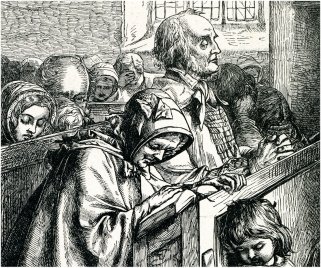What original understandings of Christian life are missing from the World's Christianity?
Touching briefly on some of the most obvious characteristics of the early Church, we see them being consistent Sabbath keepers. In the first twenty years prior to the beginning of the ministry of the Apostle Paul to the Gentiles, the Church consisted nearly entirely of ethnic Jews and Jewish proselytes. For there to have been any suggestion of a change in something as fundamental as this practice would have provoked a similar uproar as we see regarding the first suggestion of dispensing with the practice of circumcision. Absence of mention of even the slightest suggestion of such a controversy strongly suggests there was no such idea introduced in those intervening two to three decades between the cross and the progress of the writing of the New Testament. One significant place where the matter was mentioned, it pointedly affirmed the practice of keeping the Sabbath as regarding the peoples of God. (Hebrews 4) The remention, but that time in opposition to the practice in the early fourth century at the Council of Nicea, reveals that it remained an ongoing practice in some congregations of Christianity and under sufficiently strong persuasion to warrant official repudiation, along with other “Judaic observances” such as keeping of the Fourteenth Passover.
Even the suggestion among evangelicals that the Sabbath was later changed to Sunday is a tacit acknowledgement that it was otherwise originally. What we need to demand is authoritative scriptural proof that such change was Biblically sanctioned; otherwise we must admit that the idea was added! Of course, in all these centuries, no such proof has emerged! In fact, quite the opposite!
Another significant issue that came to bear as the Church’s theology developed was the issue of the attainment of the righteous condition. Specifically, not the righteousness which was by works, but that which is by faith. The religious environment out of which the Church emerged was oriented to a works mentality, which understandably was the legacy of the Old Testament belief system. One entirely appropriate prior to the sacrifice of God’s True Passover. But thereafter, the dynamics changed.

